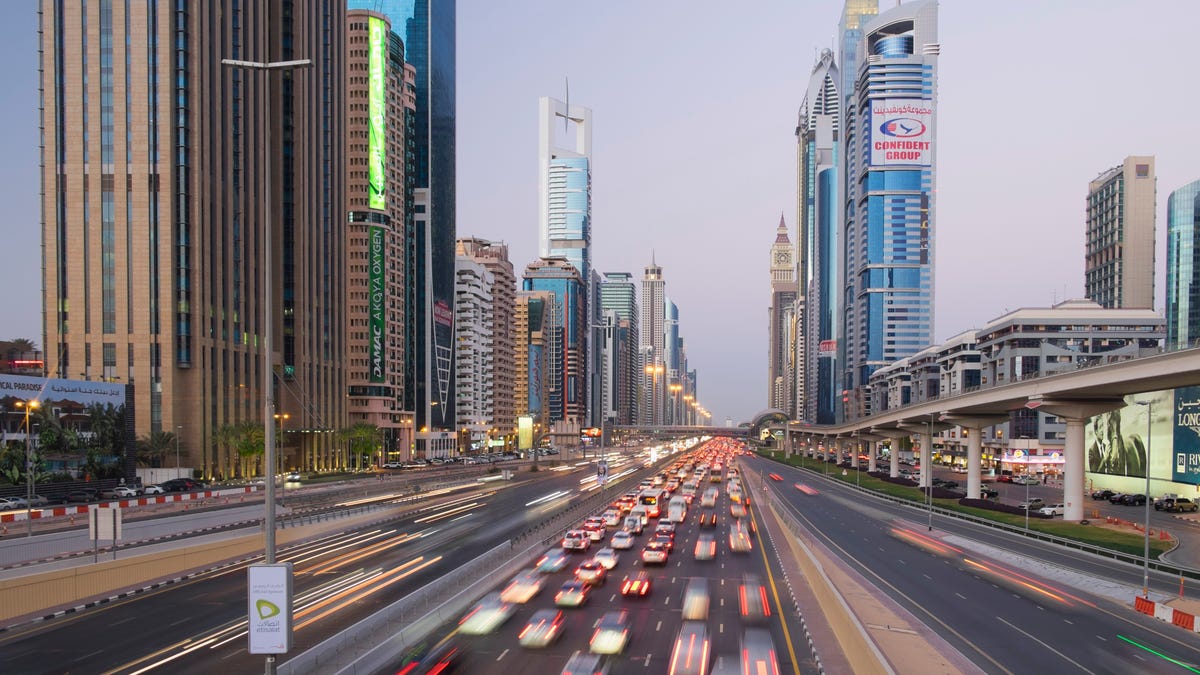Self-driving cars will rule the roads in 2030, says Internet of Things visionary
With no shortage of automakers working on robo-cars, and with Uber already a "sensor platform on wheels," we're well on the way, says MIT vet Kevin Ashton.

You'll own a self-driving car by 2030, according to the man who coined the term "Internet of Things."
LONDON -- We will discover extraterrestrial life in this century. We will survive climate change. By the 22nd century, most people will be vegetarian.
These are bold predictions, but then the man who made them, entrepreneur, author and founder of MIT's Auto-ID Center Kevin Ashton, has had a good eye for predicting the future.
In 1999, Ashton coined the term "Internet of Things," which is how we now understand the network of sensor-packed devices, from phones to street lamps to household appliances, that are learning to talk to one another. In thinking about smart tags for labeling products, he foresaw the almost ubiquitous connectivity we enjoy today.
Another of Ashton's predictions, one looking into the less-distant future, is that we will all own self-driving cars by 2030.
Self-driving cars nicely embody the vision of the Internet of Things, as they're expected to pack multiple sensors that will communicate their presence and observe their immediate environment. For now the technology can be seen only in prototype vehicles, but it's being seriously explored by multiple automakers, as well as the likes of Google and Uber. Google and Toyota, among others, are shooting to get self-driving cars in consumers' driveways by 2020 , so accounting for gradual adoption and the long life cycle of vehicle ownership, Ashton might not be too far off.
Meanwhile, the whole of the Internet of Things market will grow apace. Market researcher IDC puts that growth at an average of 13 percent each year through 2020, by which point billions of objects will be connected and the industry could be worth $3 trillion.
Ashton frequently gets asked whether self-driving cars are safe. "Wrong question," he said, speaking at Microsoft's Future Decoded event in London on Wednesday. The question should be: "Are human-driven cars safe? The answer is no." More than 3,000 people around the world are killed in car accidents every day, according to the Association for Safe International Road Travel , and most of these deaths are caused by human error.
Ride-hailing service Uber is one step ahead of the pack in that it's already an Internet of Things service, said Ashton, who calls it "a sensor platform on wheels." It uses two pieces of sensor data: where you and your smartphone are and where the nearest car is. In doing so it has disrupted and displaced the technology commonly used to find taxis -- standing on a street corner with your arm in the air.
It is this disruptive use of information that defines the Internet of Things for Ashton. The Internet of Things is not connected kettles, smart bottles and shavers that tell you when you've forgotten to shave, he said. "The Internet of Things is a wireless sensor platform. It is about turning the world into data."
Nothing epitomises this more than the smartphone. "A modern smartphone is a wireless sensor platform, not a phone anymore," said Ashton. Phones these days have about twice as many senses as humans have, and about eight times as many as your laptop. We call them phones for legacy reasons, he said, but really the phone is little more than an app on a powerful computing device.
Uber's app and prototypes of self-driving cars are just two early expressions of the Internet of Things. For Ashton, the long-term impact will be using connectivity and information to solve bigger problems, like climate change, urbanisation and overpopulation. To do this, his tip is to "make more things using less stuff."
One early, if mundane, example is replacing tickets with contactless payments across London's entire public transport system, addressing an inefficiency in a mass transit system. As population and climate issues grow increasingly urgent, Internet of Things solutions will become more and more necessary, Ashton believes.
That may not be as exciting as spotting a real space alien, or as radical for bacon lovers as going vegetarian, but it's all part of the sport of prognostication. Ashton opened his talk with the predictions about extraterrestrial life, vegetarianism and climate change to make a point. Knowing what's on the horizon may not be that tough, but accepting it is tricky.
"Predicting the future is easy," Ashton said. "Believing is hard."

